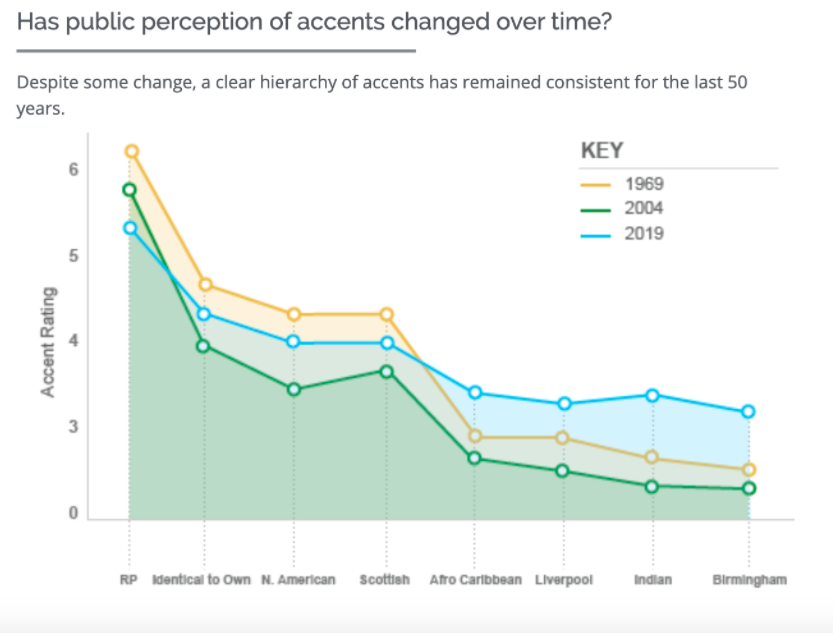Revealed: The UK accents which face most bias (bad news, Brummies)

A new study has revealed an ‘enduring heirachy of accents’ in the UK - and it’s bad news for Brummies.
University experts examined current attitudes to accents, with those shown by comparable surveys 15 years ago and 50 years ago.
And it found public attitudes to different accents and their related stereotypes had remained largely unchanged over time - with working class Birmingham and Afro-Caribbean accents sitting at the bottom of the pile.
The research undertaken by The Queen Mary University of London (QMUL) study studied the impact a person's accent has on their opportunities and life outcomes.

It examined if people were biased, positively or negatively, towards different accents and whether accent bias affected a person's judgement in a professional setting.
Results show that public perceptions of accents have changed very little since 1969 - with received pronunciation (standard English spoke in southern England), North American and Scottish accents still ranking higher than Liverpudlian, Indian and Birmingham accents.
The QMUL study found people older than 40 were more likely than those in their 20s to judge job candidates as less employable if they spoke with regional working class accents even though they were equally qualified.
But the report found lawyers and recruiters in the legal profession were more nuanced than the general public when it came to accents.

When asked to evaluate the quality of candidates' interview responses, lawyers and professional recruiters were able to concentrate on the quality of the answers, not the accents in which they were spoken.
"Accent bias exists. We all have automatic associations with particular voices," said Erez Levon, Professor of Sociolinguistics at QMUL and the principal investigator on the study.
"Bias becomes discrimination when we allow these associations to govern our judgement of unrelated traits such as intelligence or competence.
"Our work offers hope that people have the capacity to prevent their automatic biases from affecting their judgement.”
Dr Dominic Watt from the University of York's Department of Language and Linguistic Science said: "The results of the study give grounds for optimism, in that although accent-based prejudice seems to be all around us in this country, it seems to be possible for people in positions of power to put these biases to one side when it really counts.”
Read more from Yahoo News UK:
Police release CCTV image of man after ‘boy sexually assaulted in his bedroom’
Uber Eats driver, 46, 'kicked to death by gang' while protecting moped
Most children ‘will be born to parents who met online’ by 2037
The issue has been in the news after British-born US security adviser Fiona Hill gave evidence to the impeachment inquiry into President Donald Trump in Washington.
During her evidence, Dr Hill, who is from Bishop Auckland, County Durham, explained how she became a US citizen by choice, saying: "This country has offered for me opportunities I never would have had in England.
"I grew up poor, with a very distinctive working-class accent.
"In England in the 1980s and 1990s, this would have impeded my professional advancement.
"This background has never set me back in America.”

 Yahoo News
Yahoo News 

